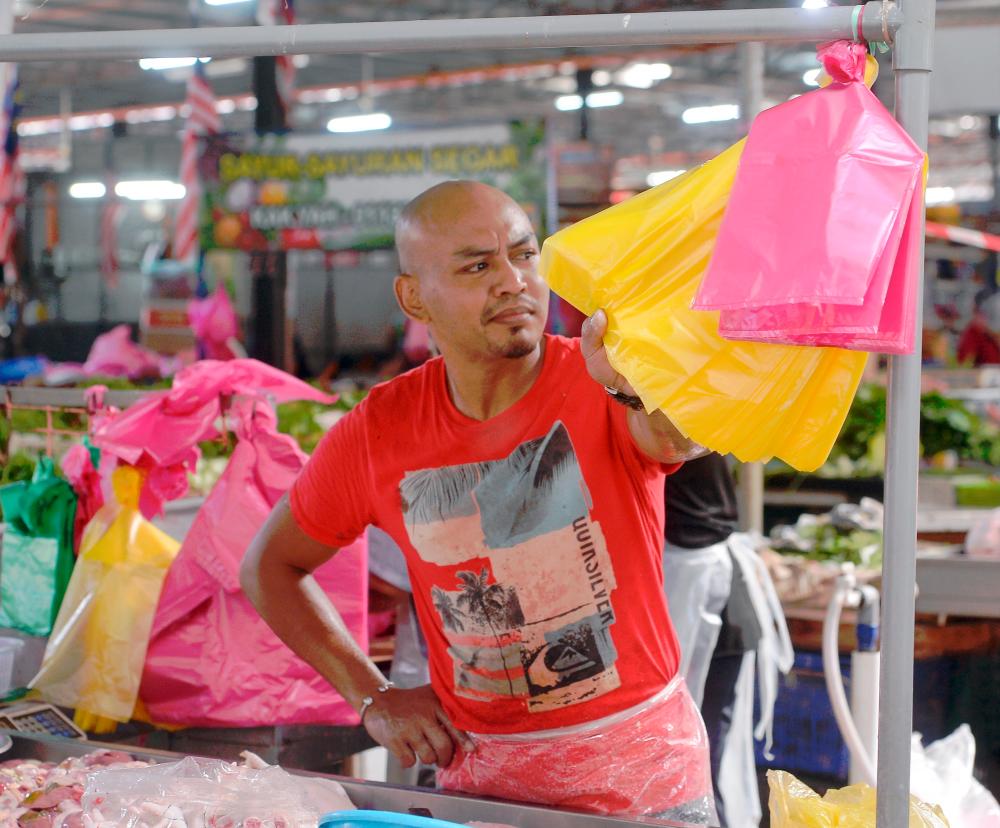PETALING JAYA: The government should institute a national policy prohibiting supermarkets and traders from charging for biodegradable plastic bags as part of a wider programme to go green and be more eco-friendly, said Universiti Putra Malaysia Faculty of Forestry and Environment senior lecturer Dr Mohd Yusoff Ishak.
He said a recent statement by Negeri Sembilan local government development, housing and transport committee chairman J. Arul Kumar, banning charges for biodegradable plastic bags to that state alone “is quite upsetting” as it should ideally be implemented nationwide by the federal government.
“It’s counterproductive to eliminate charges for biodegradable plastic bags in just Negeri Sembilan while those in neighbouring states have to buy them .
“While I understand that the intention is to enforce a reduction of single-use plastics, we need a comprehensive approach and a more collaborative effort to address the issue, rather than relying on inconsistent policies.”
The implementation of the “No Plastic Bag” campaign began with Phase 1 from December 2020 to 2021, targeting permanent business premises such as supermarkets, hypermarkets, convenience stores, fast food restaurants, petrol stations, chain stores and pharmacies.
Phase 2, which runs from 2022 to 2025, will extend the campaign to include other types of businesses, such as grocery stores and wet, night and farmer markets.
The initiative is part of the Malaysia Roadmap Towards Zero Disposable Plastic 2018 to 2030, which aims to reduce disposable plastic waste and promote more environmentally friendly alternatives.
Mohd Yusoff said addressing upstream issues is crucial before focusing on regulations for grocery stores or individual shoppers, and that the policy should also consider the entire life cycle of plastics, from its design and manufacturing stages to its end user and disposal.
“The authorities should not just instruct shopkeepers to stop selling single-use plastic bags without addressing the broader supply chain issues.
“It’s frustrating to see such a narrow policy directive because businesses, regardless of their size, and the public are left with limited options and little control over the choices available to them.”
In the latest statistics in 2022 by the Solid Waste Management and Public Cleansing Corporation, the overall rubbish generated in Kuala Lumpur and Putrajaya stood at 796,795 metric tonnes, with plastic making up 210,966 metric tonnes.
Mohd Yusoff said the government should first phase out single-use plastic bags while ensuring that biodegradable options are either free or affordable and accessible nationwide. He pointed out that the core issue lies in supply and demand, where the public demands certain products, such as plastics, and businesses supply them, despite widespread recognition of plastics’ negative impact on the environment.
“While we want industries to thrive, we must also focus on designing products that use less plastic. To achieve sustainability, single-use plastic bags should be phased out completely, but this should happen gradually to avoid resistance from users.”
In August 2023, Natural Resources, Environment, and Climate Change Minister Nik Nazmi Nik Ahmad said the “Madani Reusable Bag and No Plastic Bag” campaigns have been gradually implemented across all fixed business premises since 2022.
These initiatives will continue until 2025, when a complete ban on single-use plastic bags is expected to be enforced.
However, Mohd Yusoff expressed concern that achieving this goal may be challenging if the current inconsistent approach to plastic reduction persists.









